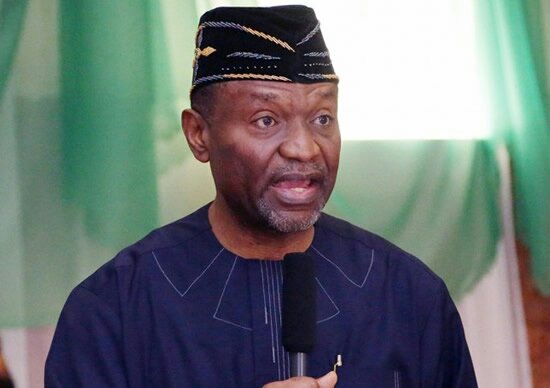News
Minimum wage: 1.5 million FG workers to earn over N2.3tn
If the demand for an increase in minimum wage is eventually approved by the Federal Government , over N 2 . 31 tn would be paid as salaries to the over one million workers on the payroll of the Federal Government , investigations have revealed .
Figures obtained from the Budget Office of the Federation show that the Federal Government is planning to make a proposal of N 2 . 31 tn as personal costs for workers on the payroll .
The N 2 . 31 tn figure is contained in the 2019 Budget Call Circular , which was obtained from the Budget Office of the Federation by our correspondent.

The Budget Call Circular signed by the Minister of Budget and National Planning, Senator Udo Udoma , sets out the requirements and instructions that must be met and followed in the preparation of the 2019 Federal Government budget proposal .
A breakdown of the N 2 . 31 tn personal costs provisions shows that about N 2 . 148 tn is being proposed for the payment of salaries of workers in the Ministries, Departments and Agencies of government.
Similarly , a budgetary amount of N 160 . 5 bn is to be earmarked to pay the salaries of workers in the government-owned enterprises .
There are about 950 MDAs of government having about 1 . 5 million workers , according to top government officials with knowledge of the Integrated Personnel Payroll Information System .
It was learnt that while the financial implications of the proposed wage increase might not have been fully determined , whatever adjustments that would be made could be captured through a supplementary budget after the main budget had been presented to the National Assembly later this month .
A top official of government in the Budget Office told our correspondent that the exact amount needed to implement the wage adjustment could not be determined immediately as no specific amount had been agreed upon .
The official , who spoke on condition of anonymity because he was not officially permitted to talk on the matter , said since the issue was still being discussed at the highest level of government, the wage bill could be higher than the N 2 . 3 tn that was budgeted for .
He said, “ The process of preparation of the 2019 budget has reached an advanced stage . Already , the Federal Executive Council has approved the Medium Term Expenditure Framework, and based on what was approved , the wage bill is over N 2 tn and from all indications , it didn ’ t capture the proposed minimum wage .
“So , we will have to send the main budget to the parliament and wait for the outcome of how much government would announce as minimum wage .
“Once that is done , a supplementary budget would have to be prepared to capture the wage adjustment. ”
Commenting on the wage increase, some finance and economic experts on Saturday said the Nigerian economy had adequate capacity to absorb the demand for an increase in minimum wage .
They said the current minimum wage was too low to boost the level of consumer demand that would stimulate the economy.
Those that spoke to our correspondent are a former Managing Director, Unity Bank Plc , Mr Rislanudeen Mohammed , and the Head, Department of Finance, Nasarawa State University, Prof . Uche Uwaleke .
Uwaleke dismissed fears that the increase in minimum wage would have negative impact on consumer demand, noting that the economy had capacity to cushion the level of inflationary pressure that might arise from the wage increase.
While admitting that the wage increase would cause immediate rise in inflation , he said this would normalise in the medium to long term .
He said, “ The economy has enough capacity to absorb the increase in minimum wage because you are talking about a population of 1 . 5 million out of about 200 million people .
“The government sector is very small compared to the total labour force and even though it is expected to extend to the private sector , it is the informal sector that employs the bulk of the labour force .
“We need a living wage to be able to reflect on the economy . Part of why the economy went into recession was because of weak aggregate demand on account of the fact that states were not paying salaries caused by revenue shortfall . ”
Uwaleke said as the economy had just exited recession with inflation at 11 . 2 per cent , there was enough capacity to absorb the increase in wage bill .
Mohammed said there must be a lot of cut-cutting measures in the areas of recurrent expenditure for government to be able to pay the minimum wage .
He said, “ If recurrent expenditure is reduced and allowances of public officials are also reduced, then the ability to pay may be enhanced but it ’ s still not enough. There must be a lot of cut- cutting measures in the area of recurrent ( expenditure) for government to be able to pay some part of the N 30 , 000 minimum wage . Even if the Federal Government pays , 80 per cent of state governments would not be able to pay that amount . ”
-

 Celebrity Gossip & Gist1 day ago
Celebrity Gossip & Gist1 day agoMoment stage collapses on Odumodublvck during concert performance (Video)
-

 Economy1 day ago
Economy1 day agoPresident Tinubu cancels Lagos engagements in honor of food stampede victims
-

 Celebrity Gossip & Gist1 day ago
Celebrity Gossip & Gist1 day ago“The quality of a woman isn’t measured by the hair on her head but by her brain” – Yul Edochie cautions ladies against killing themselves over expensive hair this Christmas


